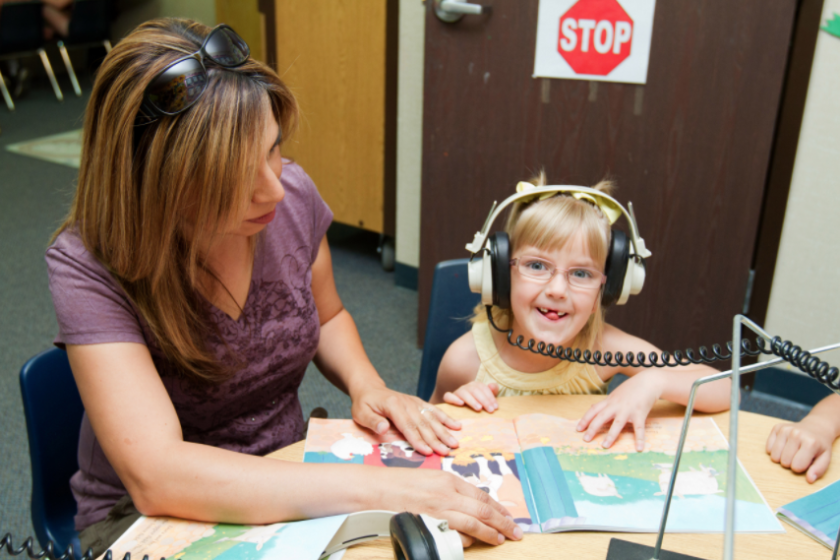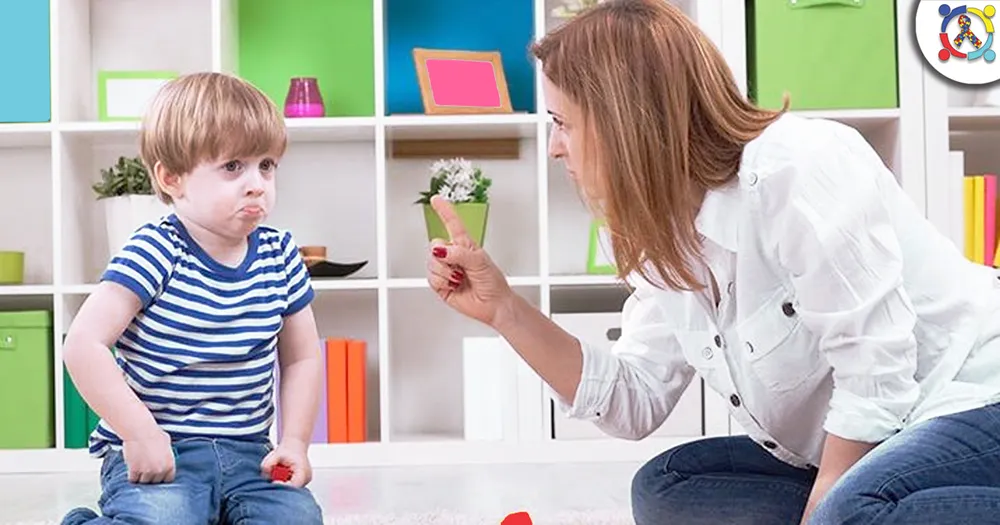Remedial Teaching Strategies

Source: graduateprogram
Remedial Teaching Strategies
Understanding and accommodating the unique learning needs of each student is at the heart of special education. Among the many tools we employ, remedial teaching strategies which stands out as a highly effective strategy. These strategies are specifically designed to help students overcome learning difficulties, fill gaps in understanding, and reinforce comprehension.
Remedial teaching isn’t just about providing extra help or tutorials; it’s about using targeted Remedial teaching strategies that address each student’s unique needs. In this article, we’ll examine some of the best remedial teaching techniques that we as teachers may use to improve our students’ learning outcomes.
Table of Content
- Individualised Instruction
- Multi-Sensory Teaching
- Peer Tutoring
- Guided Practice
- Regular Feedback
- Differentiated Instruction
- Use of Technology
- Incorporating Interests and Real-World Connections
- Chunking
- Scaffolding
- Metacognitive Strategies
- Cooperative Learning
- Courses for Special Education Teachers in India

Source: csun
Individualised Instruction:
Individualised instruction to each student’s particular requirements is one of the most successful remedial teaching strategies. This entails being aware of the student’s strength, areas of improvement, learning style, and pace. Individualized instruction may involve modifying lesson plans, using different teaching methods, or providing additional resources to help the student grasp the material.
Multi-Sensory Teaching:
Multi-Sensory Teaching approach engages multiple senses to help students learn. An instructor could, for instance, employ tangible items, audio recordings, visual aids, or movement exercises to reinforce a subject. For kids with learning difficulties in particular, this approach may make the learning process more enjoyable.
Peer Tutoring:
Peer Tutoring is a strategy, in which students work together to learn. This might take the shape of students with more experience assisting a less experienced classmate, or it could take the form of students with comparable academic ability cooperating to solve puzzles or debate ideas. In the classroom, peer tutoring may increase comprehension, boost self-esteem, and promote a feeling of community.
Guided Practice:
Guided Practice involves the teacher demonstrating a task or concept and then guiding the students as they attempt it themselves. The teacher gradually reduces their support, allowing the students to become more independent. This approach can build skills and confidence, and it provides opportunities for immediate feedback and correction.
Regular Feedback:
Regular feedback is crucial in remedial teaching. It helps students understand where they are excelling and where they need improvement. The feedback should be specific, timely and provide guidance on how to improve. This strategy, paired with regular assessments, can greatly enhance the learning process.
Differentiated Instruction:
Differentiated instruction strategy involves adjusting the content, process, product, or learning environment to better meet the needs of the student. It’s about recognizing the diverse needs of individual students and adjusting teaching methods accordingly. This can involve varying teaching materials, employing different strategies, or adjusting the pace of teaching.
Use of Technology:
Incorporating use of technology into remedial teaching can make learning more engaging and interactive. This can include the use of educational apps, online resources, or multimedia presentations. Technology can also provide opportunities for personalized learning and instant feedback.
Call here at 9321024137 / 9869866277 for a better understanding of the course.
For Downloading the brochure click here

Source: reachchildren
Incorporating Interests and Real-World Connections:
Another successful remedial teaching strategies is Incorporating Interests and Real-World Connections:
Making lessons relevant to students’ lives and interests can improve engagement and comprehension. A teacher could, for instance, develop exercises that include real-world applications of the topics being taught or utilise examples that are relevant to a student’s interests.
Chunking:
Chunking is a technique that entails dividing information into more digestible “chunks” of data. Complex material may become simpler to comprehend and recall as a result. Students with learning disabilities who may find it challenging to assimilate a lot of information at once might benefit the most from it.
Scaffolding:
Scaffolding refers to giving kids momentary assistance while they pick up new knowledge or ideas. As the student’s comprehension and confidence increase, the degree of help is progressively decreased, allowing them to work more autonomously. This approach offers a safety net as students take on new challenges while also enabling them to build on their current knowledge and abilities.
Metacognitive Strategies:
Metacognitive Strategies involve helping students to think about their own thinking. Teaching pupils how to organise, keep track of, and assess their own learning might fall under this category. Students that use this method will feel more in control, have better problem-solving abilities, and become more autonomous learners.
Cooperative Learning:
Cooperative Learning is an approach, where students collaborate in groups to accomplish a shared objective. As a result, social and cooperative skills may be developed along with a feeling of community and peer learning. Additionally, it may encourage a livelier and more interesting learning atmosphere.
The aforementioned Remedial Teaching Strategies may create a more productive and inclusive learning environment when they are customized to meet the individual requirements of each student.
It’s important to keep in mind, however, that the effectiveness of remedial education relies on the teacher’s capacity to put these techniques into practice and modify them in accordance with the requirements of each student.
The effectiveness of Remedial Teaching Strategies may be significantly impacted by these tactics when they are used correctly. Every kid is different, therefore it’s vital to keep in mind that what works for one student may not work for another. Remedial education should thus always be adaptive, flexible, and student-centered.
A reputable teacher training programme recognised by the government under the Public Trust Act of 1950 and the Societies’ Registration Act of 1860 is Vidhyanidhi Education Society (VES), situated in Mumbai. We furnish a selection of Teachers’ Training Courses and a Phonics Teachers’ Training Certificate Programme.
- Our proficiency in preschool education and teacher training has been honed over nearly two decades.
- Thousands of teaching professionals have benefited from our rigorous training programs.
- Our alumni have flourished in top-tier schools across the world, and many have founded prosperous childcare businesses.
For enrolment details call VES at 9321024137 / 9869866277.
For Downloading the brochure click here

Source: austim
Courses for Special Education Teachers in India
- Special Education Needs Course, Learning Disability Course and Shadow Teacher Training Course at Vidhyanidhi Education Society (VES) are in-depth courses for Special Education Teachers in India, giving teachers the knowledge and abilities to meet the requirements of various learners.
Special Education Courses After 12th
Special Education Courses After 12th is a thorough course is designed to provide prospective teachers the information and abilities necessary to help students with exceptional educational needs. We recognise the value of inclusive education and work to provide our students with the tools they need to establish inclusive learning environments that meet the various requirements of all students.
Eligibility:
To enroll in the Diploma in Special Education Needs program, candidates must have completed their graduation from a recognized board or its equivalent. Additionally, a passion for working with individuals with special needs and a strong commitment to promoting their holistic development is highly valued.
Duration:
The duration of the Diploma in Special Education Needs program is one year. During this time, students will engage in comprehensive theoretical and practical observation to develop a strong foundation in understanding and addressing the needs of individuals with disabilities.
Curriculum:
The curriculum of the program encompasses a wide range of topics essential for special educators.
Some of the key subjects covered include:
Introduction to Special Education
- Understanding different types of disabilities
- Legal and ethical considerations in special education
Child Development and Psychology
- Typical and atypical development
- Psychological theories and their implications for special education
Assessment and Individualized Education Plans (IEPs)
- Diagnostic tools and assessment techniques
- Developing effective IEPs to meet individual needs
Teaching Strategies and Adaptations
- Differentiated instruction methods
- Assistive technology and adaptive aids
Classroom Management and Behavior Support
- Creating inclusive learning environments
- Positive behavior support techniques
Cost:
The cost of the Diploma in Special Education Needs program varies and can be obtained by contacting Vidhyanidhi Education Society directly. We strive to provide quality education at an affordable price, ensuring accessibility to interested individuals from diverse backgrounds.
VES Certificate Acceptance:
The certificate awarded by Vidhyanidhi Education Society upon successful completion of the program is widely accepted in the field of special education. This recognition reflects the high standards of education and training provided by Vidhyanidhi Education Society, enhancing the employment prospects of our graduates.
Embark on a rewarding journey of becoming a special educator by enrolling in the Diploma in Special Education Needs program at Vidhyanidhi Education Society. Join us in making a positive difference in the lives of individuals with special needs and contribute to building inclusive and equitable educational settings.
Contact our course coordinator @ +919869866277 / +919869546913 for further details
For Downloading the brochure click here

Source: bestmed
Diploma In Specific Learning Difficulties
The Vidhyanidhi Education Society’s Diploma in Specific Learning Difficulties is a thorough programme designed to provide aspiring special educators the information and talents they need to serve students with learning difficulties. This diploma programme aims to provide students with special needs a firm foundation in understanding learning difficulties and putting good teaching practises into practise to improve learning outcomes.
This programme equips teachers to improve the lives of students with learning difficulties by putting an emphasis on theoretical knowledge and practical implementation.
Eligibility:
- Candidates must have successfully completed a recognised board or institution’s upper secondary programme in 12th grade or its equivalent.
- There are no specific age restrictions for admission.
Duration:
- The diploma course is typically completed within one year.
- The program includes both theoretical instruction and practical observation to ensure a well-rounded learning experience.
Curriculum:
- Introduction to Learning Disabilities
- Understanding Individual Learning Styles
- Assessment and Evaluation in Special Education
- Strategies for Teaching Students with Learning Disabilities
- Assistive Technology for Learning Disabilities
- Classroom Management and Behavior Support
- Inclusive Education and Collaboration
- Legal and Ethical Issues in Special Education
- Practical Training and Internship
Cost:
- The cost of the Diploma in Learning Disability program can vary and is subject to change. Interested candidates are advised to contact Vidhyanidhi Education Society for the latest fee structure and payment options.
VES Certificate:
- Upon successful completion of the program, candidates will be awarded a certificate by Vidhyanidhi Education Society.
- In the sphere of special education, the VES certificate has great regard, and special education facilities, educational institutions, and businesses all readily accept it.
The Vidhyanidhi Education Society’s Diploma in Learning Disability programme is a fantastic way for those who are enthusiastic about special education to acquire the skills and knowledge needed to significantly improve the lives of children with learning impairments. Teachers who successfully complete this programme will be able to support inclusive education and advance inclusive practises in educational contexts.
Shadow Teacher Courses
As a Special Educator for Vidhyanidhi Education Society, I would like to introduce you to our highly regarded Shadow Teacher Courses. This programme seeks to provide future educators with the abilities and information needed to help special needs students in inclusive learning environments. This course’s goal is to provide participants with the knowledge and skills they need to be successful shadow teachers with an emphasis on practical instruction and hands-on experience.
Now, let’s delve into the essential details of this training program:
Eligibility:
- Minimum educational qualification: 10th standard or equivalent.
Career Scope:
- Upon successful completion of the Shadow Teacher Training course, participants can pursue a fulfilling career as a shadow teacher, providing vital assistance to students with special needs.
- Opportunities are available in both mainstream schools and specialized institutions catering to students with disabilities.
- Graduates can also explore opportunities as inclusion support assistants, special education paraprofessionals, or resource teachers.
Duration:
- The course has a duration of 6 months, providing comprehensive training and practical exposure to the field of special education.
Curriculum:
- The curriculum encompasses a wide range of topics, including an introduction to special education, understanding various disabilities, behavior management strategies, communication techniques, individualized education plans (IEPs), assistive technology, and inclusive teaching practices.
- The course includes practical instruction and in-class observations that provide participants real-world experience in helping kids with exceptional needs.
- The special education field’s best practices and newest developments are continually included into the curriculum updates.
Cost:
- The cost of the Shadow Teacher Training programme is set up to be reasonable and open to anybody who is considering a career in special education.
- Specific details regarding the cost can be obtained by contacting the Vidhyanidhi Education Society’s admissions department.
VES Certificate:
- Upon successful completion of the course, participants will be awarded a certificate by Vidhyanidhi Education Society.
- The VES certificate holds significant value and recognition in the field of special education, with wide acceptance by educational institutions and employers.
Join the Shadow Teacher Training program at Vidhyanidhi Education Society and unlock your potential to make a meaningful impact in the lives of students with special needs. Contact our admissions department for further details and embark on a rewarding career in the field of special education.
Remedial Teaching Strategies
Eager to inspire and influence? Begin with Vidhyanidhi’s Special Education Courses.
To apply online call or Whatsapp us @ +919869866277 / +9321024137 for details
For Downloading the brochure click here
FAQ
What are the special courses?
Special courses are specialized training programs focusing on teaching methods for students with various learning needs. Vidhyanidhi Education Society provides a Special Education Needs Course.
What do you need to teach special education?
To venture into the field of special education teaching, you usually need to be a graduate along with specific training that prepares you to cater to students with unique educational needs.
How long to become a special education teacher?
If you're aiming to become a special education teacher, 2 years of specialized training after and degree, you can be ready to make a meaningful impact.
What are the special courses?
Special courses are specialized training programs focusing on teaching methods for students with various learning needs. Vidhyanidhi Education Society provides a Special Education Needs Course.
What do you need to teach special education?
To venture into the field of special education teaching, you usually need to be a graduate along with specific training that prepares you to cater to students with unique educational needs.
How long to become a special education teacher?
If you're aiming to become a special education teacher, 2 years of specialized training after and degree, you can be ready to make a meaningful impact.




